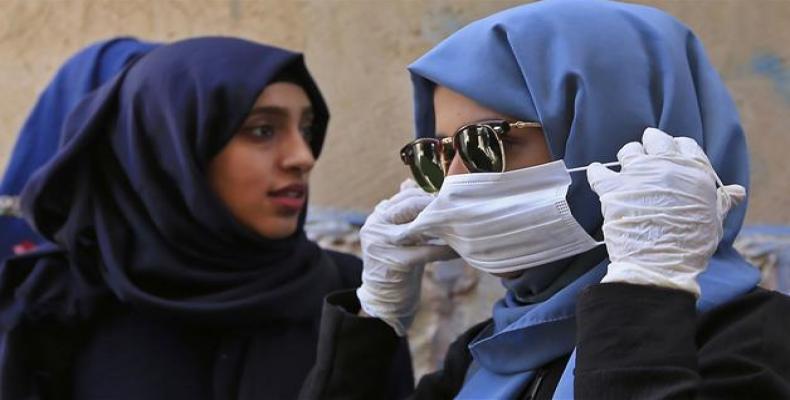Sanaa, April 2 (RHC)-- Yemen’s information minister has raised the possibility of the facemasks airdropped by Saudi-led warplanes in Sanaa and other cities being infected with the coronavirus, urging media outlets and activists to spread awareness of the danger.
Dhaifullah al-Shami said given the fact that the Saudi-led coalition has turned Yemen into the scene of the world’s worst humanitarian crisis through years of lethal military aggression, it is a big surprise to see coalition forces distributing masks across the capital and several other Yemeni provinces, the Middle East Monitor press observatory organization reported on Tuesday.
Shami urged media and activists to warn citizens against touching or wearing the masks. The official added Yemen had not yet identified any cases of the infection in the war-torn country amid the pandemic, which has affected almost all countries around the world and has claimed more than 42,000 lives.
Therefore, he concluded, the Saudi aggressors would be responsible for any emergence of the outbreak in Yemen. They have already displayed their intention to afflict Yemen with the virus by targeting a quarantine center in al-Salif District of the western province of Hudaydah Province, the minister added.
In related news, Yemen’s official Saba Net news agency cited the country’s Supreme Council for the Management and Coordination of Humanitarian Affairs as confirming the coalition’s new tactic of airdropping “various supplies” across the country.
It warned that the aggressors were trying to use the outbreak “as a means of war on our people and the targeting of Yemen, which is by far one of the three countries in the world completely free of the coronavirus outbreak.” The Council said: “Carrying out such suspicious operations, reflect their criminal intentions."
Yemen’s al-Masirah news network, meanwhile, ran an article comparing the tactic to historical allegations that the British forces contributed to the genocide of Native Americans in 1763 by distributing infected blankets among them.
Tens of thousands of Yemenis have died since the beginning of the war that Saudi Arabia and its allies launched in 2015 to restore power to Yemen’s former Riyadh-allied officials. The aggression has also brought entire Yemen to the edge of famine.
The United States and many of its allies have been providing political, military, logistical, and advisory support for the war.
Last Monday, United Nations Secretary-General Antonio Guterres called for “an immediate global ceasefire in all corners of the world” amid the pandemic. Guterres warned that health systems in war-torn states had collapsed and the small number of health professionals left on the ground were often targeted.
Yemen’s popular Houthi Ansarullah movement, which has been defending the nation in the face of the war, has welcomed the proposal.


